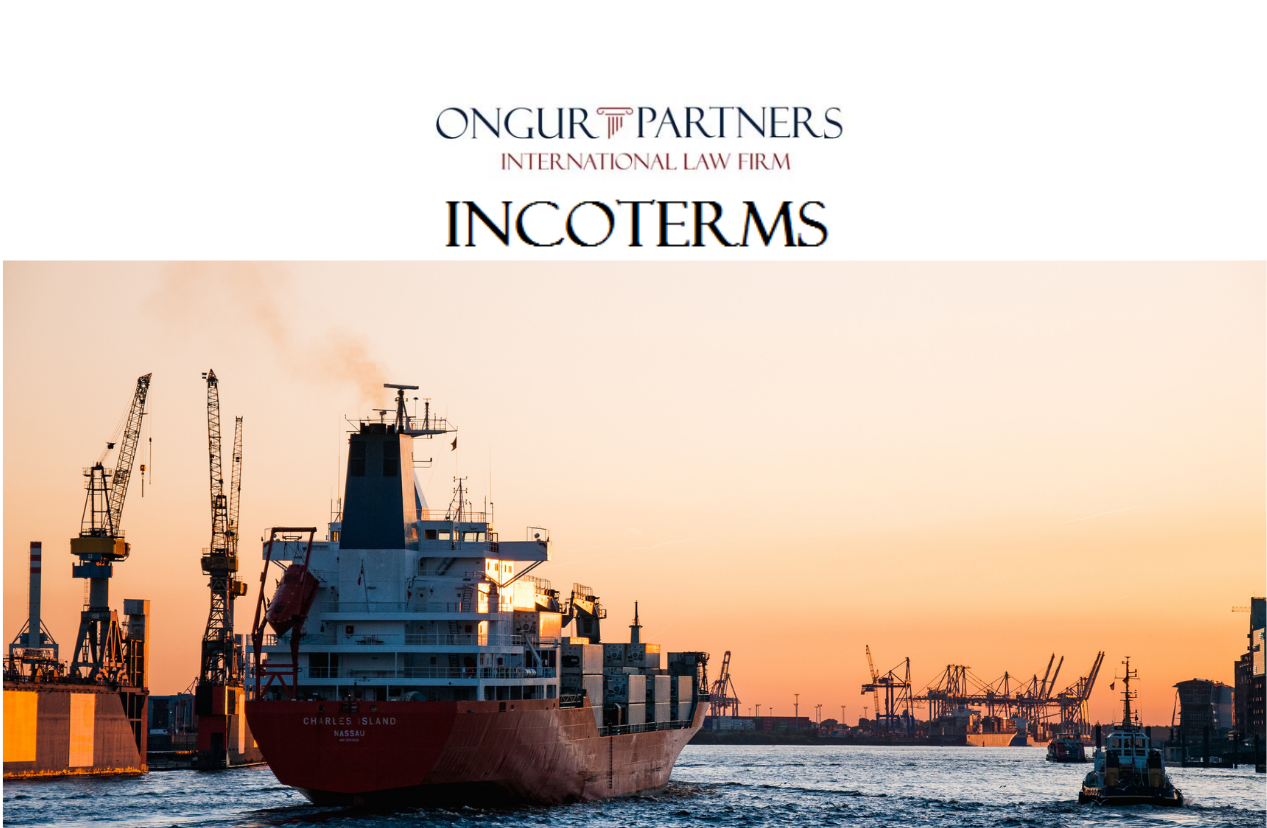Av. Deniz Bahadır
Introduction
Incoterms are a series of pre-defined commercial terms that have been issued by the International Chamber of Commerce (ICC) relating to international commercial transactions[1] since 1930. Since then, the ICC tends to revise the rules within the first year of every decade.
The Incoterms usually consist of 3 letters which are aimed to primarily clarify the risks, costs, and tasks regarding international transportation and the delivery of goods. The main objective of Incoterms is rather to define respective obligations of the parties in an international sales contract than governing the contract itself. The rules simply set out the obligations which the seller and the buyer have to follow. “The Incoterms® rules describe the following terms as below:
Obligations: Who does what as between seller and buyer, e.g. who organizes carriage or insurance of the goods or who obtains shipping documents and export or import licenses;
Risk: Where and when the seller “delivers” the goods, in other words where risk transfers from seller to buyer; and,
Costs: Which party is responsible for which costs, for example, transport, packaging, loading or unloading costs, and checking or security-related costs.”[2]
The most recent Incoterms published this year (2020) is actually the ninth set of the terms issued by the ICC. It contains 11 rules, which are mainly the same as the earlier 2010 version, with the difference that the term DAT, “Delivered at Terminal” has been removed, and replaced by a term called DPU: “Delivered at Place Unloaded”. The rules are basically divided into two categories based on the delivery method: the rules regarding any type of transport, and the rules for sea and inland waterway transport.[3]
Rules
Incoterms for any type of transport
EXW-Ex Works (named place of delivery) provides that the seller makes goods available at its premises or a prior accepted place. This term might benefit the seller since it places the maximum obligations on the buyer, as in this method, the buyer undertakes the risks of delivering the goods to the final destination.
FCA-Free Carrier (named place of delivery) foresees that the seller delivers the goods to a place that the parties have reached an agreement upon, usually the seller’s premises.
- CPT-Carriage Paid To (named place of destination) provides that the seller pays for the carriage of the goods till they arrive to the agreed place of destination.
- CIP- Carriage and Insurance Paid to (named place of destination) is almost the same with CPT, the only difference being that, in CIP the seller is obliged to obtain necessary insurance for the goods throughout the transit.
- DPU-Delivered At Place Unloaded (named place of destination) provides that the seller is obliged to cover the cost of the transport, which includes carriage, unloading, export fees and undertakes all risk until the goods arrive in the designated port or terminal.
- DAP- Delivered At Place (named place of destination) foresees that the risk passes from the seller to buyer from the point of destination agreed upon in the delivery contract beforehand.
- DDP- Delivered Duty Paid (named place of destination) provides that the seller undertakes the duty of customs; the risk and transportation duties are the same as DAP.
Incoterms for sea and inland waterway transports
- FAS-Free Alongside Ship (named port of shipment): Under FAS, the seller delivers when the goods are placed alongside the buyer’s vessel at the named port of shipment. This creates a situation where the buyer has to bear all the costs and risks of loss or damage to the goods from that moment.
- FOB-Free on Board (named port of shipment): This incoterm foresees the seller to arrange for export clearance and the buyer pays for the marine freight transportation, insurance, bill of lading fees and unloading and transportation costs from the arrival port to the designated destination. It can be said that FOB is the most widely used incoterm.
- CFR- Cost and Freight (named port of destination): By agreeing on CFR delivery in a contract, the parties mainly agree on the seller paying the carriage of the goods up to the named port of destination. Risk passes to the buyer when the goods are loaded on board of the ship in the country of export.
- CIF- Cost, Insurance & Freight (named port of destination): Although this incoterm is similar to CFR, with CIF the seller is required to obtain the insurance for goods through the transit phase. The seller is expected to turn over the necessary documents.[4]
INCOTERMS in Business
Since the INCOTERMS aren’t codified within the Turkish Code of Obligations, any Code of Obligation or in any statute, updating or modifying the term in specific cases is easier. Also knowing that these rules have been used for decades and are being revised every 10 years, one can assume that any kind of relevant dispute has already arisen and resolved in a way that makes commercial sense.
Additonaly, keeping in mind that the ICC’s main idea is to create a uniform commercial life, choosing the best INCOTERM term would provide nothing but benefits to both parties.[5] However selecting the best INCOTERM for the particular commercial relationship in terms of profitability and safety is still important, which might vary based on the parties’ positions and other factors.
Conclusion
With the ninth set of INCOTERMS that have been published by the ICC for the 2020s, grand changes are not in motion. Still, choosing the best INCOTERM that is best suited to a particular contract is an area that necessitates the assistance of a legal expert with knowledge of International Commercial Law.
For example if a commercial transaction is to take place between Turkey and Italy, what would be ideal is to find a lawyer who is knowledgeable with respect to the laws of both these countries. Otherwise, minor differences that tend to be ignored in the beginning of a commercial relationship might become major disputes later. As it is well known, however, preventing disputes from happening is the most efficient and affordable way of doing business. For more information please seek an expert lawyer on international contracts.
[1] INCOTERMS® 2020
[2] Ibid INCOTERMS® 2020
[3] https://2go.iccwbo.org/downloadable/customer/pdf/
[4] https://www.trade.gov/know-your-incoterms
[5] In Turkish: The Journal International Trade and Arbitration Law Year 2012/I 1p. 149



